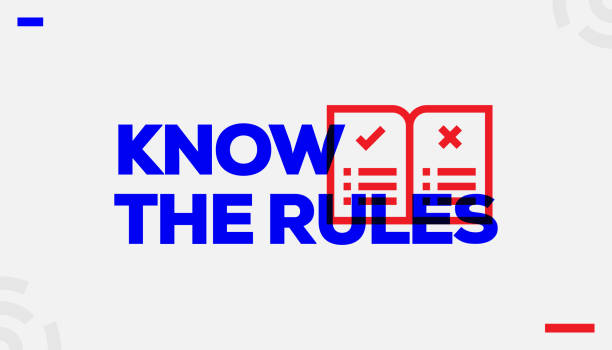
When to comply or not comply
Dismissal is often the most likely outcome when an employee decides not to comply with a lawful and reasonable direction from their employer. But what happens if that direction could place your safety at risk? This is the question that the Fair Work Commission (FWC) had to answer in an unfair dismissal case heard in August. It involved a Cairns bus driver who was dismissed for not picking up three schoolchildren. Thereby breaching his employer’s ‘no child left behind’ policy. The bus driver, however, argued that his safety was at risk. When is it OK to disobey a lawful direction by your employer is important reading
Let’s delve further into this unfair dismissal case – Martin Brett vs Transit Australia Pty Ltd. To see why the bus driver thought his safety was at risk by these children. Also, whether the Fair work Commission thought that was a sufficient reason to disobey his employer’s lawful and reasonable direction.
But first, let’s provide clarity on the rules around following lawful and reasonable directions from your employer. Its not just a matter of the lawful instruction, its also how is the instruction delivered. Is it reasonable in the circumstances?. Its not always one size fits all. Does the compliance with the direction require training?. Has it been made clear by your employer the disciplinary processes that apply if not followed, including dismissal?.
What is a lawful and reasonable direction?
Following the directions of your boss, supervisor or manager is of course critical to the functioning of your employer’s business. That’s why the Fair Work Act 2009 dictates that an employee can be fairly dismissed for serious misconduct if they fail to comply with a lawful and reasonable direction. Such a dismissal takes effect immediately and doesn’t require the employer to provide any notice.
A ‘lawful’ direction is one that doesn’t require the employee to break the law – either state, territory or federal. A ‘reasonable’ direction is less clear cut. The reasonableness depends on the circumstances, including the nature of the employee’s and the stipulations of their employment contract.
If an employee believes their employer’s direction is either unlawful or unreasonable, they have the right to refuse following it. If it isn’t, however, they could face a summary dismissal. Let’s look at the case of the bus driver who received just that for refusing to comply with his employer’s lawful and reasonable directions.

“Do you want me to call the police little man?”: Bus driver faces a tricky situation
Martin Brett had been driving for Transit Australia (which trades as Sunbus) for over three years. When on 27 November 2021, he pulled his empty bus up to a regular stop. When he opened the bus doors, three boys aged between eight and ten jumped on board. Mr Brett immediately noticed that one of the boys was holding a metal rod in his hand, which he quickly concealed in his pocket. Another began swinging on the bus doors.
Then the third boy said that they wanted to go to a nearby shopping centre. However but didn’t have any money for the fare. Mr Brett told the boys that he couldn’t take them as they weren’t accompanied by an adult. He suggested that they could wait for the next bus that may have adult passengers on board. He also told them that they could walk to the shopping centre, as it wasn’t far away.
After a five-minute conversation with Mr Brett, in which he asked one of the boys “do you want me to call the police, little man?”. The trio then jumped off the bus. But as the doors closed, one of the boys pressed the emergency button that opened the doors. He then launched the metal rod and it narrowly missed Mr Brett, striking the driver’s side window.
Following the incident, Mr Brett called Sunbus’ base office for further instructions and was told to wait for a response team to show up. When they did, they checked the bus, and Mr Brett continued his scheduled run. He didn’t complete his shift because of the incident.
Bus driver is dismissed for serious misconduct
Mr Brett didn’t return to work until 17 February 2022. He was immediately stood down by Sunbus for failing to comply with its lawful and reasonable direction. Specifically, its ‘no child left behind policy.’ The policy states that it’s “mandatory that Bus Drivers never leave a child behind under any circumstances. Regardless of whether they are able to pay for a fare or not.”
On 23 February, Mr Brett was summoned to a meeting with several of his Transit Australia superiors. He was shown CCTV footage of the incident and given the opportunity to explain what happened. But during a break in the meeting, Mr Brett was told that he would be dismissed for serious misconduct.
Mr Brett subsequently lodged an unfair dismissal claim with the Fair work Commission.

“Poorly considered and ill-conceived”: Bus driver argues his unfair dismissal case to the FWC
At his Fair work hearing, Mr Brett relied on several arguments to justify why he disobeyed his employer’s direction and prove that his dismissal was unfair. Firstly, he outlined that he had indeed stopped for the boys, and when the situation became unsafe, contacted the Sunbus response team. He insisted that by staying at the bus stop to wait for the response team, no child had been left behind.
Secondly, he argued that the boys had themselves decided to get off the bus and leave the area. Also, that they had been under the influence of substances, and that he felt unsafe. Thirdly, Mr Brett challenged the reasonableness of the ‘no child left behind’ policy, which he asserted was “poorly considered and ill-conceived.” He also attempted to argue that his conduct was in line with the Criminal Code Act 1899 (Qld). The Act states that children under the age of 12 cannot travel on public transport alone.
Fourthly, Mr Brett argued that he was denied procedural fairness. He says he wasn’t given a chance to discuss why he shouldn’t be dismissed. He also argued that the manager who dismissed him was prejudiced against him. And lastly, Mr Brett argued that his dismissal was unfair because “he is a gentleman of senior years.” He said it caused him financial hardship and that at his age, he’s unlikely to find employment.
“Not a scintilla of supporting evidence”: The FWC skewers Mr Brett’s arguments
Mr Brett’s wide-ranging arguments didn’t hold up under the scrutiny of Deputy President Lake, who characterized them as “evasive” and “self-serving.”
“[Mr Brett] did not strike me as a witness of credit, rather someone who was perpetuating a justification that in the light of day, did not stand up,” said the Deputy President. Lake brushed off Mr Brett’s claim that the boys had been on substances, castigated him for producing “not a scintilla of supporting evidence.” He also dismissed Mr Brett’s attempt to argue his conduct was in line with the Criminal Code as “plainly an overreach.”

Was the ‘no child left behind’ policy reasonable?
Deputy President Lake carefully considered the reasons for Sunbus’ ‘no child left behind’ policy. He agreed that many members of the public rely on their service, including children, and that it was their right to implement such a policy. “It is not for the Commission to determine how Sunbus should organize its enterprise,” said the Deputy President, who determined the policy was indeed reasonable.
DP Lake found that Mr Brett’s failure to allow the boys on the bus was “clearly a breach of the [no child left behind policy],” and therefore his employer’s lawful and reasonable direction. He also said that the boy would not have thrown the rod “had [Mr Brett abided by the policies of [Sunbus].”
The Deputy President further eviscerates Mr Brett’s claims
DP Lake said Mr Brett had misled the boys by stating that they must be accompanied by an adult on the bus. He also outlined that Mr Brett had escalated the situation by suggesting to the boys that he would call the police. This was a huge mistake, said Lake, who declared that the “potential for violence was low.”
He found that Mr Brett had “deliberately breached the company policy regarding children,” and stated that Sunbus did indeed have a valid reason to dismiss him. Additionally, Lake found that Mr Brett was not denied procedural fairness, nor was his manager prejudiced against him. Ultimately, the Deputy President ruled that Mr Brett was not dismissed unfairly.

Conclusion to: When is it OK to disobey a lawful employer direction?
Have you been given an unlawful or unreasonable direction?
An employee has the right to refuse following their employer’s direction if they feel it’s either not lawful or reasonable. It is, however, often hard to determine whether this is the case, particularly when there are so many circumstantial factors involved. If you feel you have been given an unlawful or unreasonable direction, of have been unfairly dismissed for not complying, a Whole New Approach can help. We can provide guidance around what your rights. If needed, help you make an unfair dismissal claim with the Fair work.
Facing a workplace investigation, adverse action, or others actions by your employer over directions, call us immediately
Call us today on 1800 333 666 for a free and confidential conversation.
Articles similar to When is it OK to disobey a lawful employer direction?
Reinstated for unfair dismissal after saying “f..k off Karen”






